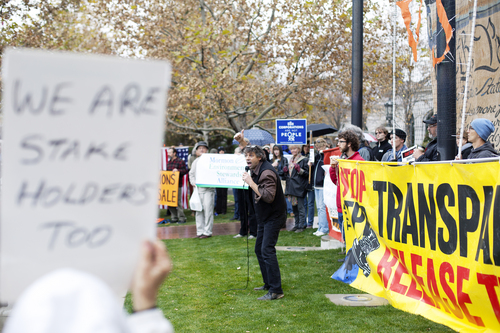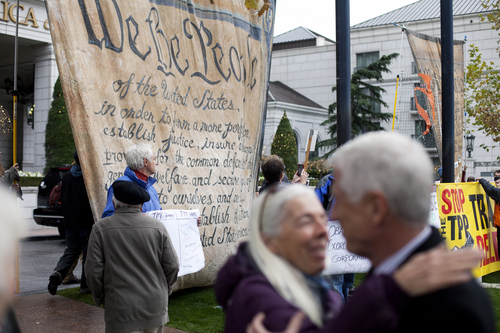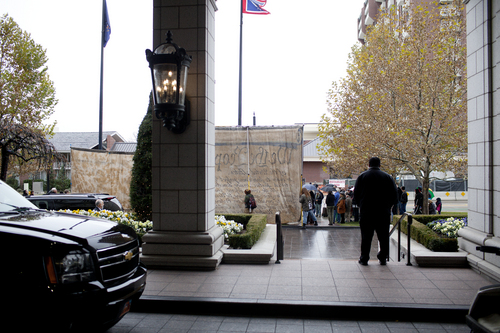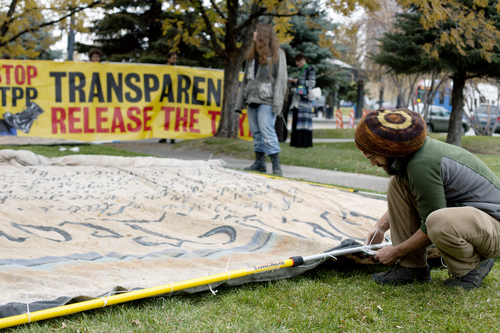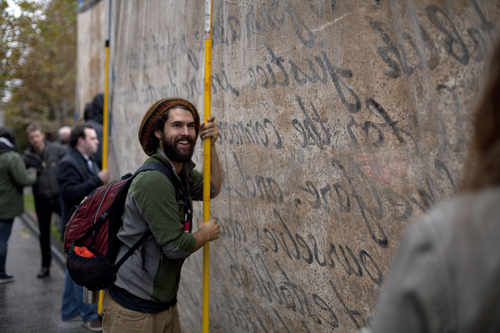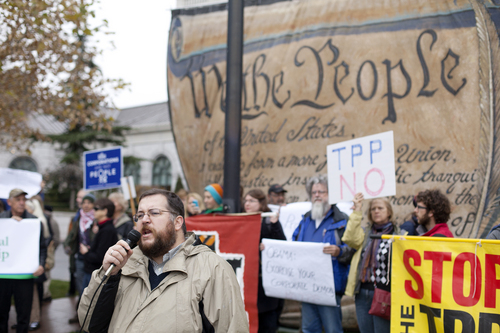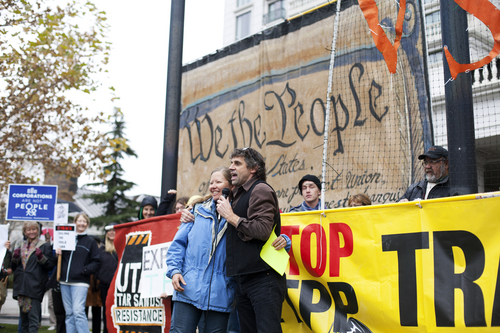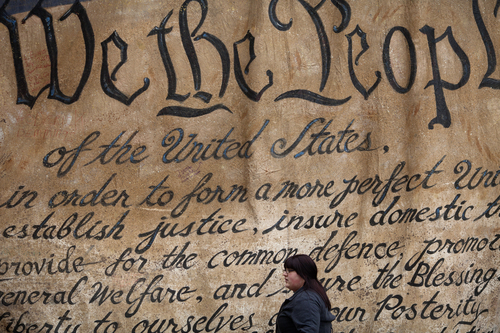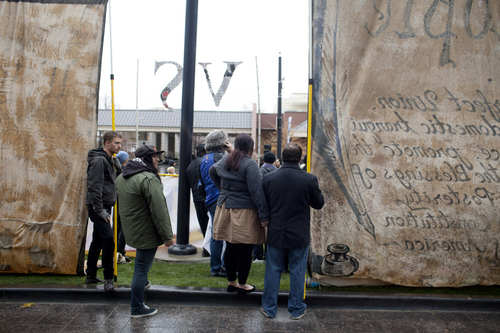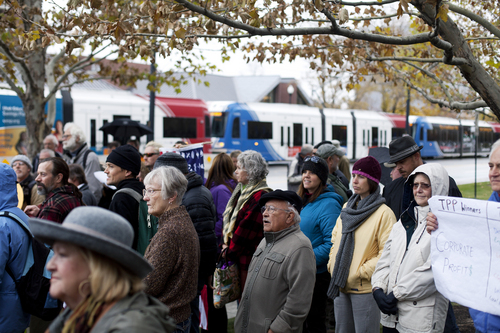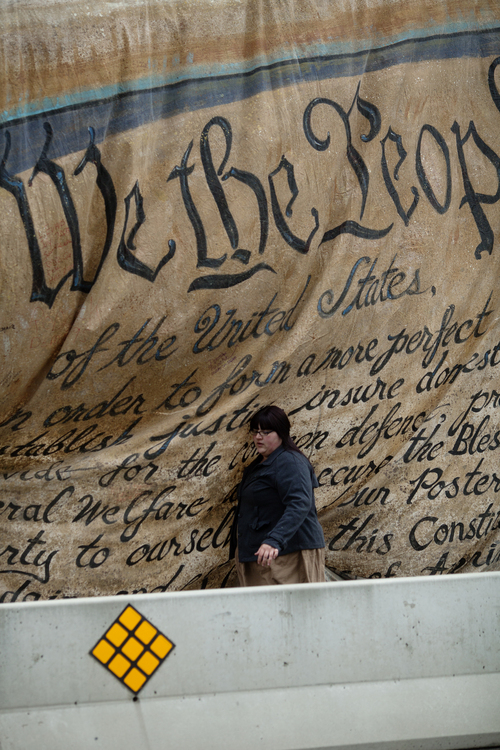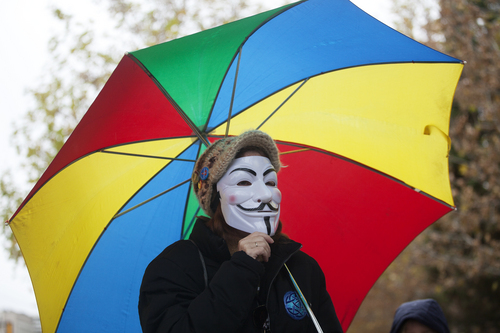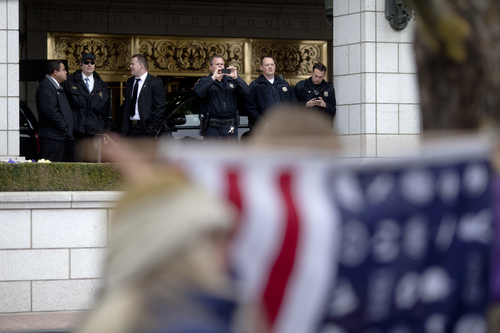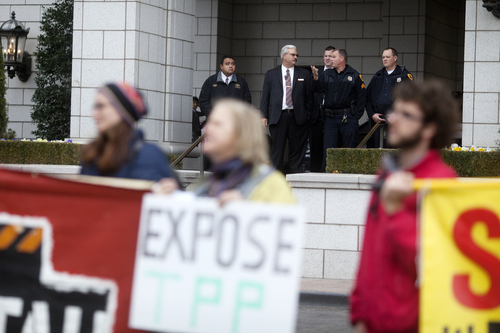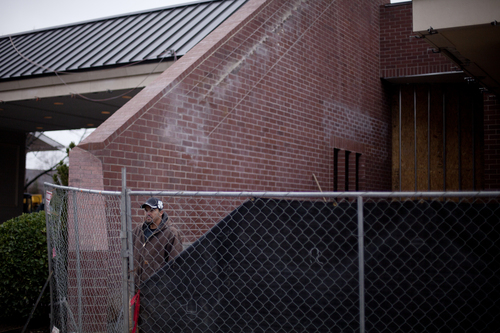This is an archived article that was published on sltrib.com in 2013, and information in the article may be outdated. It is provided only for personal research purposes and may not be reprinted.
Outside Salt Lake City's Grand America Hotel on Tuesday, the rains fell, the speakers rose, the marchers chanted.
Inside, top trade negotiators from the United States and 11 other Pacific Rim nations perhaps discussed imports and exports, profits and products, prices and patents. The exact topics aren't known. The talks were closed.
And that concerns critics most of all as parties from the Trans-Pacific Partnership launched a 19th round of negotiations — this time in Utah — in search of a sweeping free-trade agreement.
Tuesday's rally, organized by a coalition called the Citizens Trade Campaign, of Washington, D.C., drew 100 or so protesters, who allege that the high-level talks have been conducted behind closed doors with only multinational corporations given access to proposed provisions.
Carol Guthrie, senior adviser for media affairs of the Office of the U.S. Trade Representative, which is negotiating for the United States, said participation by outside groups has been much greater than protesters claim.
"The congressionally-mandated committees of advisers that review U.S. proposals include both industry sources and advisers from academia, labor, environmental and other groups as well," she said.
Watched over by a small contingent of Salt Lake City police and other security officers, demonstrators carried various signs on the lawn and sidewalk in front of the hotel. Among them: "Protect Us From Corporate Protectionism," "Obama: Exorcise Your Corporate Demons" and "Mormon Environmental Stewardship Alliance."
One group held a U.S. flag, with the stars replaced by corporate logos such as those for McDonald's, CBS, Coca-Cola and Microsoft.
Among Utahns who spoke were Dale Cox, president of the state AFL-CIO; Wayne Holland, a United Steelworkers Union representative; and former Salt Lake City Mayor Rocky Anderson.
Cox pointed to the North American Free Trade Agreement as a model for the proposed Pacific accord, which he warned would lead to the loss of more U.S. jobs.
"They're here to take jobs from us to other countries," Cox said.
Holland echoed those remarks, saying, "We cannot allow NAFTA in the Pacific."
Raphael Cordray, of Utah Tar Sands Resistance, said her group fears a final agreement would allow foreign corporations to sue local or state governments that pass laws affecting businesses' profits.
"That's what people don't understand about these trade agreements," Cordray said in an interview. " ... They can actually take away some of the sovereignty that we have in our local communities."
Guthrie said her office had worked hard to introduce "unprecedented transparency" into the negotiations. She also touted the importance of foreign trade to Utah jobs.
"More than 100,000 jobs in Utah alone are supported by trade," Guthrie said. "Twenty percent of Utah's manufacturing jobs are supported by trade. Twenty percent of Utah's exports go to the region represented by the Trans-Pacific Partnership."
Besides the United States, nations belonging to the Trans-Pacific Partnership are Australia, Brunei Darussalam, Canada, Chile, Malaysia, Mexico, New Zealand, Peru, Singapore, Japan and Vietnam.
Groups plan to protest throughout the week, with the talks set to last through Sunday.


